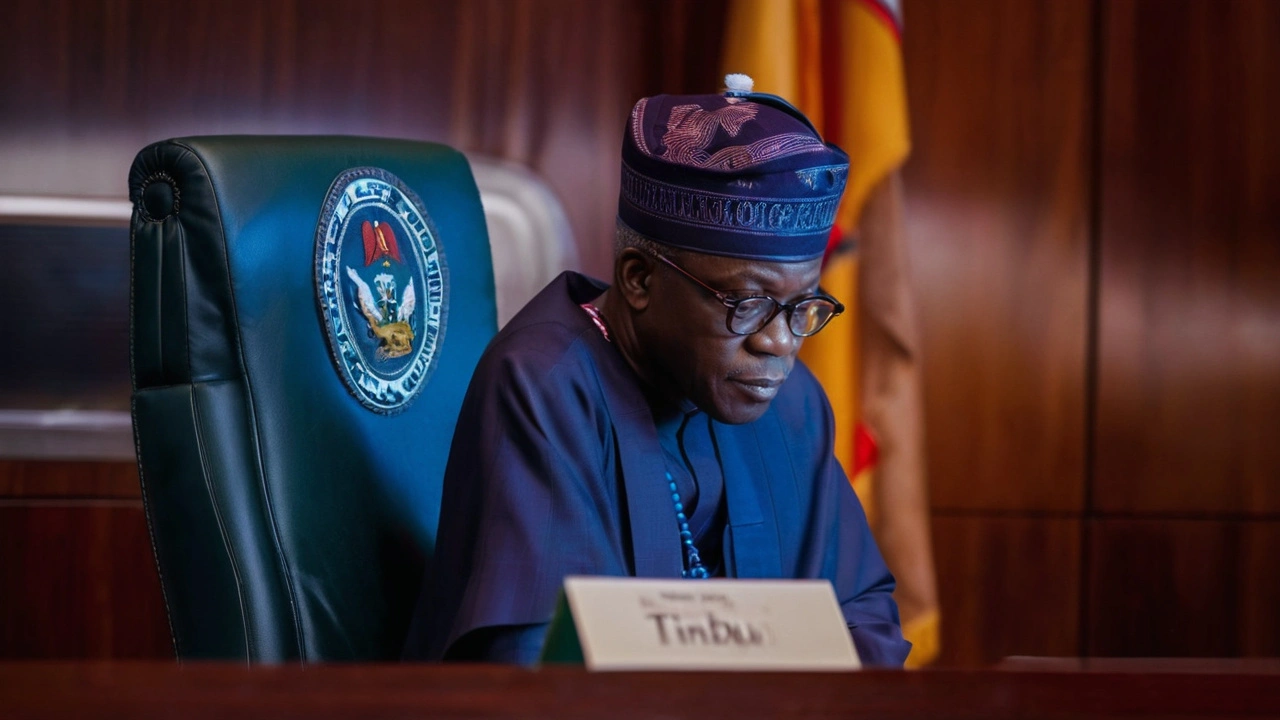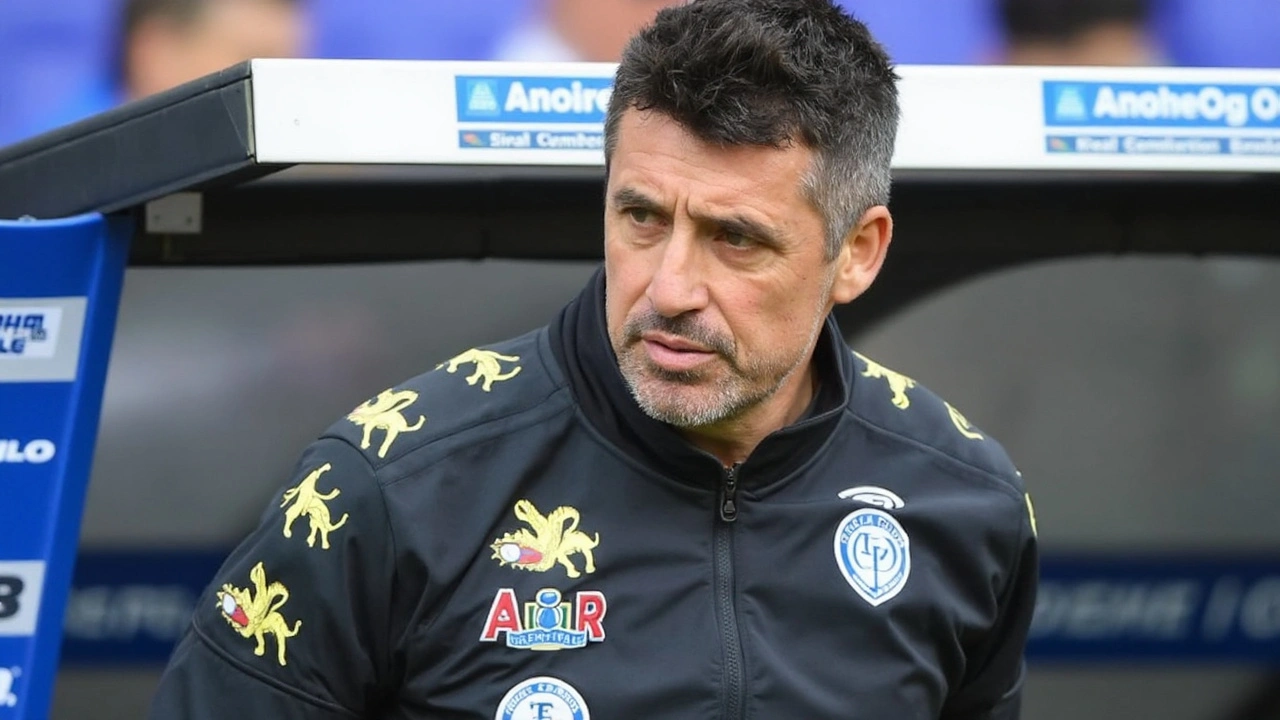President Tinubu to Address Nation Amid Ongoing Hunger Protests
President Bola Tinubu is preparing to speak directly to the Nigerian people this coming Sunday, August 4, 2024, during a televised national broadcast. The address, which was officially announced by Ajuri Ngelale, the Special Adviser to the President on Media and Publicity, will be broadcasted at 7:00 AM, with additional broadcasts scheduled for 3:00 PM and 7:00 PM the same day.
This much-anticipated address comes at a critical juncture, as nationwide protests have erupted over issues of poor governance. These protests have now entered their third day and have been marked by significant violence. Tragically, the protests have resulted in deaths, looting, and the destruction of both public and private properties.
According to a report from Amnesty International, at least 13 people have lost their lives at the hands of security agents. However, these figures are contested by the police. Olumuyiwa Adejobi, the police spokesperson, has denied Amnesty's reported figures, attributing the deaths to other factors such as terrorist activities, local vigilantes, and even a reckless driver.
The ongoing turmoil has led to widespread calls for the president to address the nation and respond to the grievances being aired by the protesters. In particular, the issues of poor governance, which include severe economic hardships and widespread hunger, have been at the forefront of the protesters' concerns.
In his upcoming address, President Tinubu is expected to tackle these pressing issues directly. The aim of the broadcast is not only to inform but also to soothe the escalating tensions that have gripped the nation. The president's message is expected to provide reassurances and potentially outline steps the government will take to address the protesters' demands.
The significance of the president's address is underscored by the fact that it will be broadcast across multiple platforms. Nigerians will be able to tune in via television, specifically through the Nigerian Television Authority (NTA), as well as through radio broadcasts provided by the Federal Radio Corporation of Nigeria (FRCN). Additionally, the address will be available on various other electronic media outlets, ensuring wide accessibility across the nation.
The Context of the Protests
The nationwide protests have highlighted deep-seated issues within the country. Nigeria, despite being one of the largest economies in Africa, has struggled with systemic challenges that have left many citizens grappling with poverty and hunger. The demonstrations have brought these issues to the surface, forcing the government to reckon with the escalating dissatisfaction among its populace.
Over the past three days, the protests have spiraled into chaos in several cities, with reports of violence between protesters and security forces. Shops and businesses have been looted, and properties destroyed, exacerbating the already tense situation. The violence has caught the attention of international human rights organizations, with Amnesty International raising alarms over the use of excessive force by security agents.
Reports from Amnesty International have described the security forces' response to the protests as brutal and heavy-handed, leading to the loss of civilian lives. However, the Nigerian Police have pushed back against these allegations, with spokesperson Olumuyiwa Adejobi asserting that the reported figures are inflated and incorrect. According to Adejobi, some of the deaths were caused by terrorist activities and incidents unrelated to the protests.
Despite these conflicting reports, the fact remains that the situation on the ground is dire. The mounting death toll and the destruction of property have put immense pressure on the government to take decisive action. This is the context in which President Tinubu's address is set to take place, and the expectations from the public are high.
An Urgent Call for Solutions
As the nation waits for President Tinubu's address, there is a palpable sense of urgency for concrete solutions. The protesters' demands are centered around issues of poor governance, economic mismanagement, and insufficient social services. The call for better governance is not new, but the intensity of the current protests reflects a growing frustration among Nigerians who feel that their concerns are being ignored.
In recent years, the economic situation in Nigeria has worsened for many citizens. Inflation has eroded purchasing power, while unemployment rates have soared. The gap between the wealthy and the poor has widened, leading to increased social tensions. These economic hardships have been exacerbated by issues of corruption and inefficient government policies, fueling discontent.
For President Tinubu, the upcoming address is an opportunity to acknowledge these pressing issues and present a plan of action. Nigerians will be looking for more than just reassurances; they want to see tangible steps that the government will take to address their grievances. The president's ability to communicate effectively and convincingly will be crucial in calming the current unrest.
Anticipating Policy Responses
One of the critical aspects of President Tinubu's address will be the policy responses he proposes. Given the multifaceted nature of the challenges facing Nigeria, a comprehensive approach is necessary. Addressing issues of hunger and poverty will require not only immediate aid and relief measures but also long-term strategies to stimulate economic growth and improve social services.
Economic revitalization will likely be a key focus of the president's address. Measures to boost job creation, support small and medium enterprises, and stabilize the national currency could be pivotal in easing some of the economic pressures on citizens. Additionally, reforms aimed at reducing corruption and improving transparency in government operations may be part of the proposed solutions.
The issue of security is also likely to be addressed. With the protests turning violent and reports of excessive force by security agents, there is a pressing need to review and reform the approach to maintaining law and order. Ensuring that security forces act in accordance with human rights standards will be crucial in restoring public trust.
The Role of International Observers
The events unfolding in Nigeria have not gone unnoticed by the international community. Human rights organizations, foreign governments, and international media have been monitoring the situation closely. The attention from international observers adds another layer of pressure on the Nigerian government to handle the protests and the accompanying violence appropriately.
Amnesty International's report highlighting the deaths of protesters has brought additional scrutiny. The international community is keenly watching how the Nigerian government responds, and there are calls for accountability and adherence to human rights norms. President Tinubu's upcoming address provides an opportunity to demonstrate a commitment to addressing not only the immediate crisis but also the underlying issues that have led to the protests.
The president's ability to engage with international stakeholders and communicate a clear and effective response will be important. Positive international relations can also play a role in supporting Nigeria's efforts to address its economic and social challenges through foreign aid, investment, and diplomatic cooperation.
A Nation Awaits
As the broadcast approaches, the atmosphere in Nigeria is one of anxious anticipation. Citizens from all walks of life will be tuning in to hear what President Tinubu has to say. The weight of expectations is heavy, with many hoping that the address will mark the beginning of meaningful change and a move towards addressing the nation's deep-seated issues.
The president's address is more than just a broadcast; it is a moment that could shape the nation's future trajectory. The response from the public will depend greatly on the content and tone of the message, as well as the perceived sincerity and practicality of the proposed actions.
Nigeria stands at a crossroads, and the path taken in the aftermath of President Tinubu's address will have significant implications for its stability and growth. The world is watching, and the eyes of the nation are on its leader. As the clock ticks down to the broadcast, the hope for a resolution and a brighter future remains strong.





